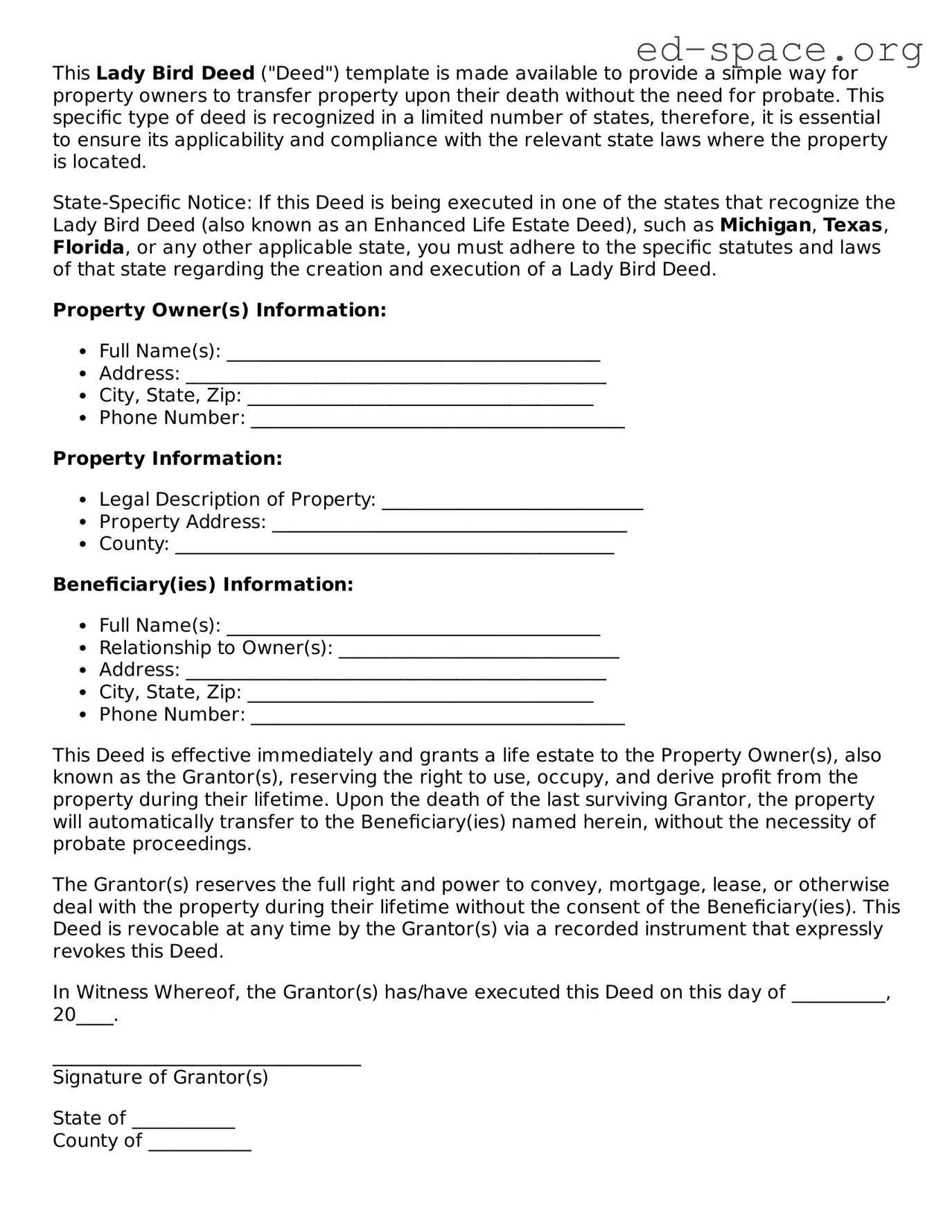This Lady Bird Deed ("Deed") template is made available to provide a simple way for property owners to transfer property upon their death without the need for probate. This specific type of deed is recognized in a limited number of states, therefore, it is essential to ensure its applicability and compliance with the relevant state laws where the property is located.
State-Specific Notice: If this Deed is being executed in one of the states that recognize the Lady Bird Deed (also known as an Enhanced Life Estate Deed), such as Michigan, Texas, Florida, or any other applicable state, you must adhere to the specific statutes and laws of that state regarding the creation and execution of a Lady Bird Deed.
Property Owner(s) Information:
- Full Name(s): ________________________________________
- Address: _____________________________________________
- City, State, Zip: _____________________________________
- Phone Number: ________________________________________
Property Information:
- Legal Description of Property: ____________________________
- Property Address: ______________________________________
- County: _______________________________________________
Beneficiary(ies) Information:
- Full Name(s): ________________________________________
- Relationship to Owner(s): ______________________________
- Address: _____________________________________________
- City, State, Zip: _____________________________________
- Phone Number: ________________________________________
This Deed is effective immediately and grants a life estate to the Property Owner(s), also known as the Grantor(s), reserving the right to use, occupy, and derive profit from the property during their lifetime. Upon the death of the last surviving Grantor, the property will automatically transfer to the Beneficiary(ies) named herein, without the necessity of probate proceedings.
The Grantor(s) reserves the full right and power to convey, mortgage, lease, or otherwise deal with the property during their lifetime without the consent of the Beneficiary(ies). This Deed is revocable at any time by the Grantor(s) via a recorded instrument that expressly revokes this Deed.
In Witness Whereof, the Grantor(s) has/have executed this Deed on this day of __________, 20____.
_________________________________
Signature of Grantor(s)
State of ___________
County of ___________
On this day of __________, 20____, before me, a Notary Public, personally appeared ___________________________, known to me (or satisfactorily proven) to be the person(s) whose name(s) is/are subscribed to the within instrument and acknowledged that he/she/they executed the same for the purposes therein contained.
In Witness Whereof, I hereunto set my hand and official seal.
_________________________________
Notary Public
My Commission Expires: ___________
